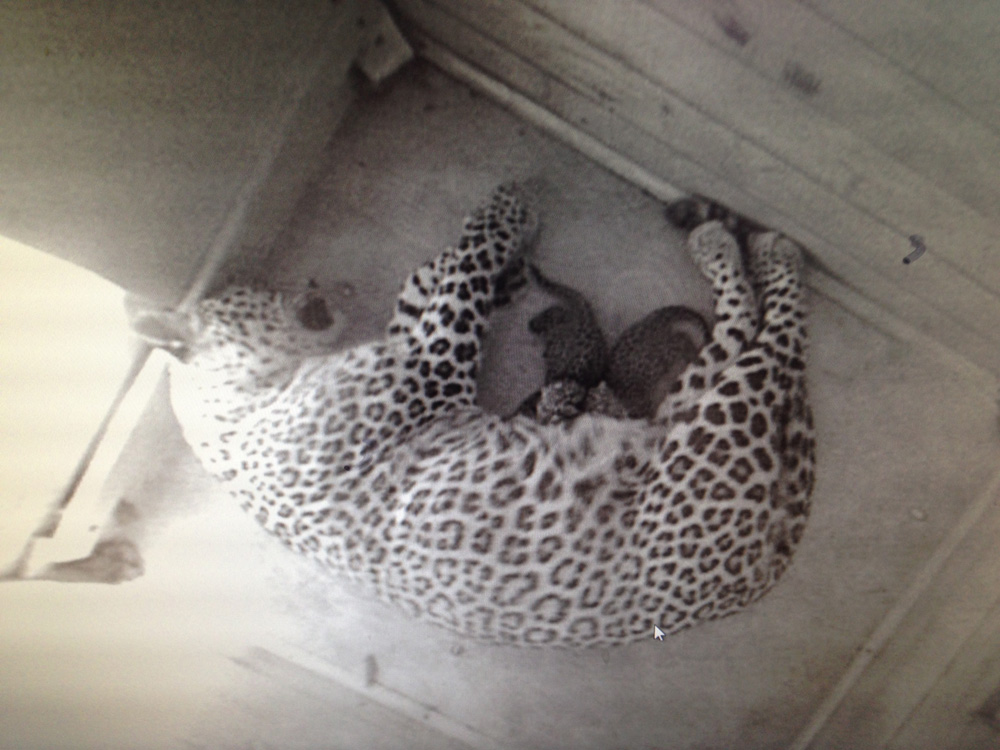Two Rare Persian Leopard Cubs Born in Russia

Get the world’s most fascinating discoveries delivered straight to your inbox.
You are now subscribed
Your newsletter sign-up was successful
Want to add more newsletters?

Delivered Daily
Daily Newsletter
Sign up for the latest discoveries, groundbreaking research and fascinating breakthroughs that impact you and the wider world direct to your inbox.

Once a week
Life's Little Mysteries
Feed your curiosity with an exclusive mystery every week, solved with science and delivered direct to your inbox before it's seen anywhere else.

Once a week
How It Works
Sign up to our free science & technology newsletter for your weekly fix of fascinating articles, quick quizzes, amazing images, and more

Delivered daily
Space.com Newsletter
Breaking space news, the latest updates on rocket launches, skywatching events and more!

Once a month
Watch This Space
Sign up to our monthly entertainment newsletter to keep up with all our coverage of the latest sci-fi and space movies, tv shows, games and books.

Once a week
Night Sky This Week
Discover this week's must-see night sky events, moon phases, and stunning astrophotos. Sign up for our skywatching newsletter and explore the universe with us!
Join the club
Get full access to premium articles, exclusive features and a growing list of member rewards.
Two Persian leopard cubs were born in a Russian national park last week for the first time in 50 years, according to a statement from the World Wildlife Fund. The species is endangered.
The Persian leopard is one of the largest leopard subspecies, and the beasts once heavily roamed southwest Russia's Caucasus Mountains and the surrounding region along the southern Caspian Sea.
But heavy poaching and habitat loss in the 20th century landed the animal on the International Union for the Conservation of Nature's endangered species list, with only about 1,290 adults now believed to be alive in the wild.
The two newborns were bred at the Persian Leopard Breeding Rehabilitation Center in Sochi National Park, in an effort to help reintroduce the population to the wild. The cubs' parents joined the center in 2012 from Portugal's Lisbon Zoo.
The youngsters are about 6 inches long (15 centimeters), and probably weigh only about 1.5 pounds (700 grams), though the center staff has not yet handled the animals to avoid disturbing them, the head of the breeding center said in a statement.
Leopard cubs typically remain in their den for about two months, feeding on partially digested meat from their mother at first, and eventually developing their own hunting skills.
Those involved in the rehabilitation effort hope this birth could provide a small step forward for the species.
Get the world’s most fascinating discoveries delivered straight to your inbox.
"They will be released into the wild after learning surviving skills, and will start a new population of leopards in the Caucasus Mountains," Natalia Dronova, the World Wildlife Fund's Russian species coordinator, said in a statement.
Follow Laura Poppick on Twitter. Follow LiveScience on Twitter, Facebook and Google+. Original article on LiveScience.

 Live Science Plus
Live Science Plus










